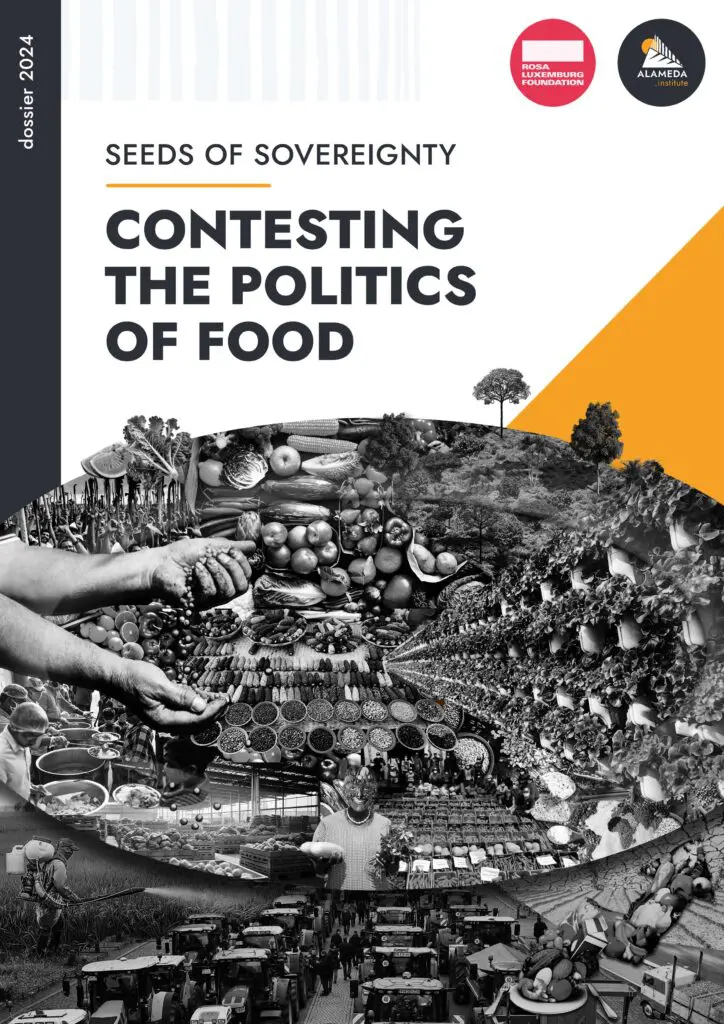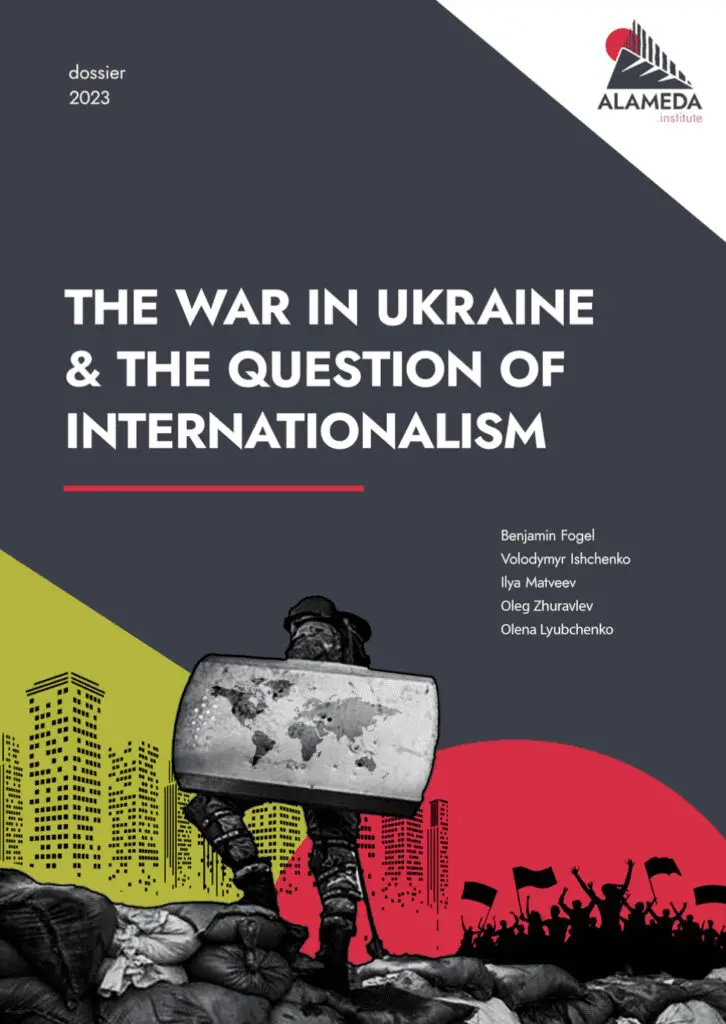XII / In solidarity with Ukraine: Reflections on war and death
I am writing this note of solidarity from Lebanon, which for decades was taken as synonymous with war. War remains a possibility here: it is always immanent, if not the very founding ground of politics. And though the war in Ukraine appears to be different, it is arguably a war of the same in a different form.
Sectarian war, like the war we experienced in Lebanon, is colonial war because it does not allow for real difference to emerge: it is a war of neighbours, of sameness, a war that disavows intimate difference. But segregation and division are the political codes of this century, regardless of place and location: in Lebanon, Palestine, Syria, Iraq, Yemen, Ethiopia, Ukraine.
Today, people everywhere know very well how to talk about the war without having to name its location. But there is always yet another war brewing on the horizon, and this seems a sure sign that something is not right with our world. The war in Ukraine gets more attention than what is happening in, say, Tigray or Yemen; but war, regardless of location, signifies an interruption, something of the Real coming into view in the present. Though modern history is often retold as a trajectory punctuated and shaped by revolutions, war has been the more determinant event.
Wars of partisanship
Most twentieth-century wars were wars of partisanship – as Carl Schmitt would have had it – based on a politics of enmity, in the wake of the retreat of theological guarantees and then the defeat of revolutionary politics. They were also enabled by ‘noble lies’, which Leo Strauss, one of Schmitt’s sparring partners, recognised as instrumental to the state’s maintenance of social order and political community.
Two of the most influential political theorists of the past century, Schmitt and Strauss were conservatives, concerned with the failure of modernity and the crisis of authority it produced. Both believed that modernity had somehow corrupted politics: Strauss reverted to the classics, while Schmitt sought to re-enchant politics after secularism with a renewed concept of sovereignty. Schmitt’s thought would influence the Nazis, among others, while Strauss is often remembered today as the foundational theorist of neo-conservatism. The current war is Schmittian, in that it involves competing claims to sovereignty: that of the invaders, as well as that of the resisters. But it is also Straussian, sustained through unifying lies on different sides.
Here, I am not interested in the notion of territorial sovereignty, which is not what is really at stake, despite portrayals by Western liberals. Although Russia has effectively annexed Ukrainian territory, its primary aim is not territorial. That would be anachronistic. Rather, both Russian and Ukrainian officials frame their actions as a defence of a ‘right to existence’.
Schmitt argued that sovereignty has nothing to do with legality: it is simply a matter of decision in a state of exception. Sovereignty becomes the power of ‘genuine decision’, unmediated by the mechanisms of legal positivism and parliamentary liberalism. Schmitt’s theory of the political provides licence for war, but this is not to say that it simply obfuscates concrete political struggles. It already reflects a partisan ideological position in the immanent trajectory of war that continues to shape politics today. Strauss, who famously criticised Schmitt’s concept of the political, nonetheless maintained an antagonistic view of politics.
The war on Ukraine can be justified on the grounds laid by Schmitt and Strauss; it can be justified as a means to ‘restrain the risks of democracy’. My proposition here, then, is that to be in solidarity with Ukraine means to renew, through political practice, a non-liberal critique of the realism common to both Schmitt and Strauss.
Ukraine and global solidarity
The war in Ukraine has divided the world – not only decision-making states. In Lebanon – the country of sectarian civil war, which recently failed to pay its contribution to the United Nations’ operating costs, temporarily losing its voting rights in the General Assembly – the government has officially condemned Russia’s invasion. But the so-called ‘axis of resistance’, which includes Hezbollah and the Syrian Social Nationalists, as well as residual elements of the Stalinist left, has positioned itself in support of Russia. It also supports the Syrian regime. It considers the war on Ukraine a legitimate defensive action against American expansionism.
This position is attractive for those who claim to be anti-imperialists; but it remains within the very parameters of the political that allowed for the war on Ukraine in the first place. Not only are we no longer in the age of imperialism – the nation-state now resurgent – but we are also no longer in an age that allows this kind of wager: the wager that there is one Big Other responsible for all our miseries.
It is telling that such crude anti-imperialism has been emptied of any utopian content. Russia, unlike the Soviet Union, does not purport to offer an alternative to capitalism. It offers only an alternative capitalism: one that is autocratic, illiberal, and occasionally non-Western.
International solidarity must begin with the premise that war is a condition of violence that has to be addressed in the context of a permanent structure of exploitation. If war is a means to the reproduction of the bourgeois state, radical solidarity with Ukraine stems from an interest in transcending such politics. It cannot simply be the ideological defence of human rights, which reduces the violence of war to a subjective exchange between perpetrators and victims. Sustaining a view of the political based on ‘association and dissociation’, rather than good and evil, the Schmittian realism that continues to shape international order is critically opposed to such a depoliticising posture, but for the wrong reasons.
Schmitt was also wary of the liberal subordination of politics to economics through abstract norms that disavow the collective: individualism is a problem for reactionaries because it negates the political, which is about ‘real human groupings’. Although Schmitt claimed that politics could no longer be simply construed in moralistic theological terms, he proposed that theology needed to be revived in secular terms through partisanship and the necessity of naming a common enemy.
Sigmund Freud’s analysis of war and politics was already a rejoinder to this account – and it can be mobilised in the current context in support of an internationalist solidarity. For Freud, war is immanent. Rather than focusing on the effect of fear and enmity, as Schmitt did, Freud questioned the very function of affect, its political uses.
Aggressivity and group formations
The psychoanalytic concept of aggressivity offers a critique of such a realist politics of enmity. It informs us that the enemy also possesses an unconscious.
For Schmitt, the desired aim of politics is the state’s monopoly over violence. According to Freud, on the other hand, the very problem of the state is that it forbids wrongdoing for the sake of preserving its monopoly on law. His essay ‘Reflections on War and Death’, published in 1918, is relevant here:
It is indeed a mystery why the individual members of nations should disdain, hate, and abhor each other at all, even in times of peace… It seems as if all the moral achievements of the individual were obliterated in the case of a large number of people, not to mention millions, until only the most primitive, oldest, and most brutal psychic inhibitions remained.
Freud’s statement should not be read in the spirit of liberal group psychologists. After all, his Ego and Group Psychology was written as a critique of Gustav Le Bon and others who claimed that collective affects, mobs, groups, and so on reflected a resurgence of primitive archaic sentiments, a regression to premodern group formations and, most importantly, serious threats to the state.
Liberal group psychologists saw, and continue to see, populism and collective identifications as a threat to the state’s desired fostering of individualism against group formations. Freud, however, claimed that the Ego itself is a result of the group, an image of the collective that resides in subjects. His statement above should be understood as a continuation of this critique: how is it that the liberal state comes to function not as an autonomous individual (and here ‘autonomous’ in Freud’s account would mean an individual not driven by self-interest, who can question desire and forms of enjoyment), but as an angry mob? Nationalism, which is based on egoism, is Freud’s ultimate target here: ‘The noble Americans are just as egotistic in their dreams as the Austrians’.
The reason we still witness such a capacity for war and aggressivity is that civilisation is not able to get rid of the possibility of regression, in the form of nationalism. ‘The extraordinary plasticity of psychic development’, Freud argued, ‘is not without limits as to its direction; one can describe it as a special capacity for retrograde action or regression, for it sometimes happens that a later and higher stage of development that has been abandoned cannot be attained again’.
The core of the impulse for war and violence, the killing of another, has to do with the retroactive reconstruction of formative aggressivity. Rather than understanding war as a decay of morality – an inclination, as Hobbes would have it – Freud argues that war is the result of reconstruction based on ‘later acquisitions and developments’ of an indestructible impulse for destruction. The secret of these ‘later acquisitions’ for war perhaps lies in the nation-state.
War and the return of the repressed
Wars is at once a regression, a repetition, and a return of the repressed, which the modern state has not been able to shed. It is an indictment of the shortcomings of liberal modernity, and Freud, who was indeed a radical liberal, was deeply troubled by this problem. How could civilised society make war, despite all its claims about progress?
For Freud, war must become a moment for acknowledging a feeling of ‘strangeness in the world’ that cannot be ignored, an uncanniness in national belonging. He argued that war must be a source of de-familiarisation that should push the limits of our understanding. It is irrational, illogical; however, it is proof that rationality is not ‘an independent force’, and that we cannot ‘overlook its dependence upon our emotional life’.
Reasons, Freud proposes, are common, like blackberries. But they are ‘fruitless when our interests are concerned’. The reason for the incapacity of reason to do away with war lies in the modern attitude towards death, our inability to deal with death as a limit within, and of, life.
This is where Freud’s argument really grounds our discussion of solidarity. Since war is associated with the uncanny, with disturbance, we are prone to put its significance out of mind, to impulsively declare solidarity with its victims because ‘we cannot, indeed, imagine our own death [naturally]’. ‘In the unconscious’, he continues, ‘every one of us is convinced of his immortality’. However, de-familiarising our very relationship with death, wars also have the capacity to remake our relationship to life.
Freud proposes that we can only entertain the idea of death when it has to do with others, and that the modern subject is prone to ‘renunciations and exclusions that result in the tendency to rule out death from the calculations of life’. These include our immense capacity to mourn for others: it is modern convention to give more consideration to the dead, who no longer need it, than we give to the living. The modern problem of the inability to reconcile with death is sublimated in art, theatre, literature, and so on, in a way that reassures us that ‘beneath all the vicissitudes of living, a permanent life still remains to us’.
Wars are supposed to interrupt all of this, destabilising our previous attitude towards death. Yet the normalisation of war has dullened the impulse to consider such questions. Freud was struck by the capacity of modern ‘civilised’ nations to engage in such large-scale acts of violence. Precisely that which he found to be uncanny, Schmitt understood as the nomos of the earth. According to the Schmittian view, international relations are defined by wars waged to further national-state interests. Freud, meanwhile, sought an ‘international understanding’ of war, which would help people everywhere work through this form of aggressivity and avoid serving as a ‘cog in the gigantic war machinery’.
States repress their citizens for the sake of maintaining moral standards. World War I was shocking to Freud because it lifted this repression. If states could act immorally and illegally, what was to be expected of the individual? The state of exception had been naturalised, and the law thus exposed as barbaric. The war dealt a significant blow to the function of the Super-Ego. There was now no shame in displaying an unrestricted authority over life and death; the social bond had begun its dissolution. If Freud thought this in 1918, what can we say in 2023?
Death drive and progress
Until World War I, modern civilisation had progressed through the denial of death as the termination of life. The modern belief in immortality is a result of a disavowal of finitude in general. The strong inhibition instilled by the commandment of ‘thou shall not kill’ is a sign of the murderous aggressivity that is universal to humankind. This aggressivity is preserved intact in the unconscious, which ‘does not believe in its own death’ and constantly acts accordingly.
Death is not acceptable to the death drive: it is precisely what is impulsively denied. Death is disavowed because we relate to it with so much contradiction: we ultimately wish it upon our closest relations, as on our enemies. Love is more often than not accompanied by moments of intense hostility: ‘Except in a few instances’, Freud proposes, ‘even the tenderest and closest love relations also contain a bit of hostility which can rouse an unconscious death-wish. But at the present day, this ambivalent conflict no longer results in the development of ethics and soul theories, but in neuroses, which also gives us profound insight into the normal psychic life’.
Modern neurosis is precisely this harbinger of death, providing a place where the unconscious death-wish manifests itself in intensely conflictual emotions of love and hate. Freud again: ‘Our unconscious is just as inaccessible to the conception of our own death, just as much inclined to kill the stranger, and just as divided, or ambivalent towards the persons we love as was primitive man’.
Although Freud expresses a sense of confusion about how it could be that war is possible in modern civilisation, he ends ‘Reflections on War and Death’ with what seems like a call for battle:
Si vis pacem, para bellum.
If you wish peace, prepare for war.
The times call for a paraphrase:
Si vis vitam, para mortem.
If you wish life, prepare for death.
Aggressivity is here to stay, it seems, as is the unconscious desire for violence and immortality. But rather than naturalising the realist justification for war, recognition of this encourages a rational and political opposition to wanton destruction of the collective life of society, as now wrought by Russia in Ukraine. Life is lived in the shadow of the death drive; yet we are unprepared for it. Being in solidarity during war means that, regardless of context, we must be in constant preparation for death. Rather than disavowing it, displacing it, or repressing it, we must learn that we cannot live without avowing the death drive, that we cannot hope to live if we cannot prepare to die. Death, here, is symbolic. Yet its acceptance is essential to a materialist rehabilitation of life, against the naïve vitalism of contemporary liberals, and against the realism of Schmitt and Strauss.
RELATED ARTICLES
XI / Sovereignty and the polycrisis
IX / Humanitarianism after Unipolarity
VII / Theses on the Situation in Ukraine
IV / Counter(revolutionary) war against society
II / The class conflict behind Russia’s war




